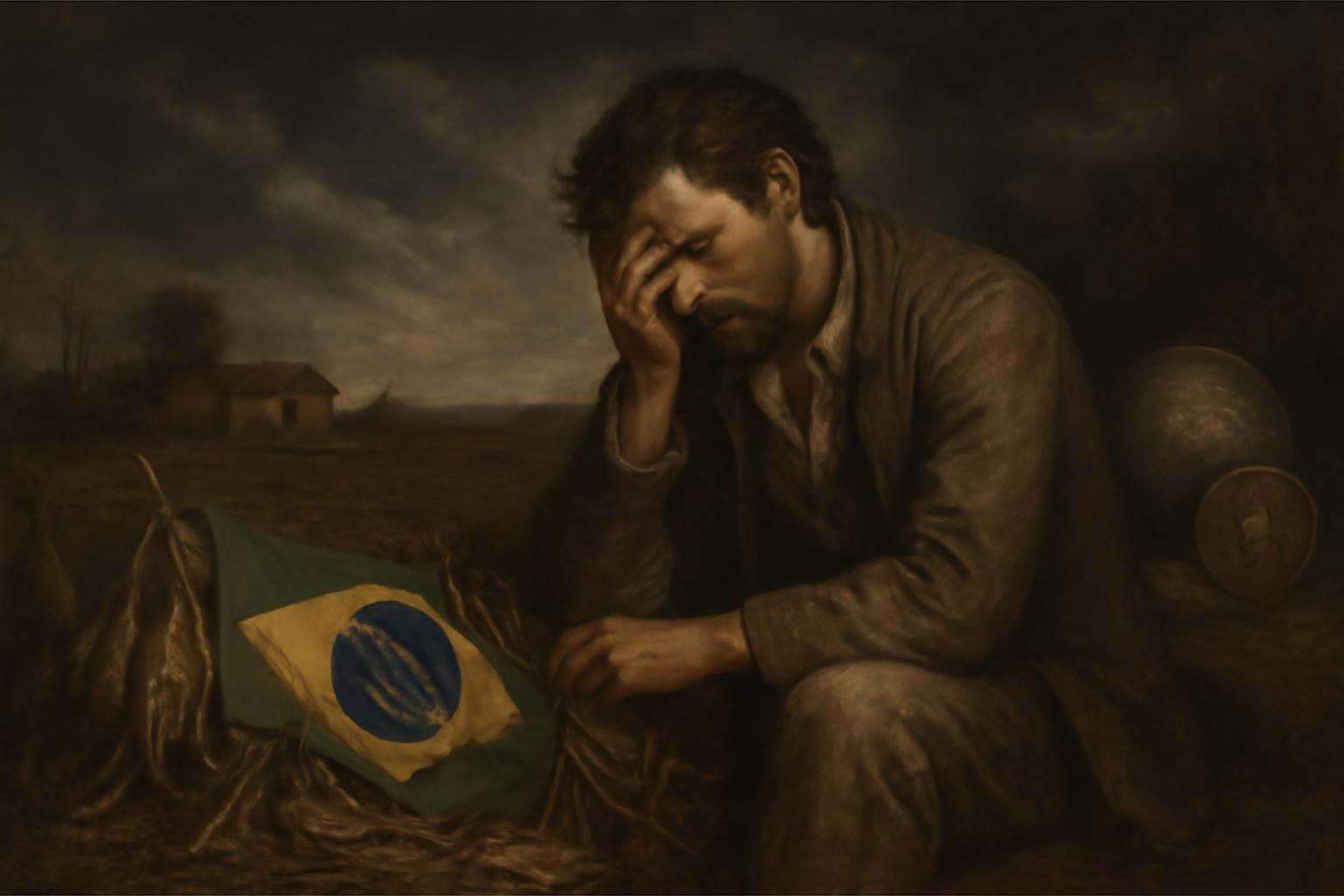Once again, the danse macabre of international commerce unfurls its melancholy steps: across the lush valleys where Brazilian coffee once promised honest prosperity—where João Machado, caretaker of ancient groves, dreamt his labors might transcend mere survival—a shadow now falls. The heavens, which Pindar and Virgil might have described as favoring the devoted peasant, look away as the caprice of men in distant palaces pronounces ruin from across the hemisphere. The fruit of the earth, commodified, encounters the iron law of power politics: tariffs, those modern Scyllas, rise jagged on the horizon, devouring not only beans and cattle, but the fragile hopes embedded in each.
This is no mere clause in a trade agreement—it is the eternal recurrence of woe, a pageant of antagonism where the world is rendered stage for the will to power, heedless of the soil and sweat of its cast. For what, after all, is justice in the agora of nations? The formal rituals begin—appeals to Geneva and blandishments within the wraith-like WTO, whose language is as arid as the wind over the ruins of Delphi. What is left of legitimacy when the law of the strong presides, and the weak must couch their suffering in bureaucratic petitions? Trumpian might proclaims the right to shatter markets in pursuit of private vendetta, while his partisans exult as if victory over a rival could erase the deepening chasm between economic demand and the yearnings of the human heart.
Nietzsche saw this world—thick with ressentiment and the groans of those who cannot but affirm life even as it crushes them. The spectacle grows more absurd when our ancient trade in goods becomes the pawn of criminal prosecutions and the desperate flailing of political clans. Here, the tragic forms repeat: the chorus weeps for the lost harvest, the sovereign proclaims the dignity of law, but the gods have already fled the city. For every João Machado, each euro lost is the whisper of a civilization disintegrating into arbitrary force and unreason, a sequel to the fall of Troy played on a global stage, but stripped of grandeur, reduced to bureaucracy and headlines.
Modernity has gutted the vitality that once animated the West, leaving behind only a marketplace where the soul’s longing for justice is drowned in the rattle of tariffs and the litany of percentages. Who among us can gaze unmoved as these forces remake the ancient relationships of land and labor into a struggle for supremacy between empty states? Brazil’s reorientation toward China, like some Orestes seeking new patronage, bespeaks not victory, but exile—a forced wandering. Where are the Hesiods of our time, mourning in measured verse the ruin of rural lives laid low by the hubris of distant politicians? The slow decline: it is not merely economic, but moral—a tragedy whose chorus is tired, whose audience has ceased to listen, and in whose silence the spirit of the West flickers ever fainter.
